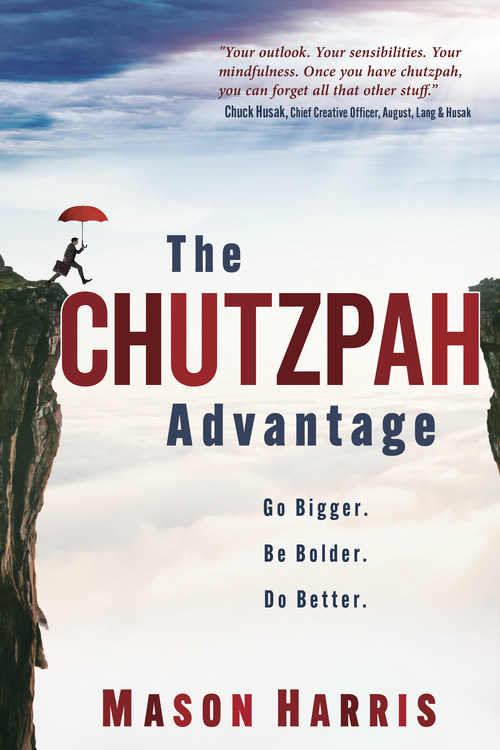WASHINGTON, April 19, 2021 /PRNewswire/ — Wowing a client on the first try with an amazing proposal sounds like the dream, but the best thing you can do for a client is let them tell you no, a lot.
That’s the advice of major sales consultant and business development expert Mason Harris, author of the book The Chutzpah Advantage: Go Bigger. Be Bolder. Do Better. (2021, Indie Books International).
“No one likes hearing objections, but listening is the first rule of communication,” says Harris. “It becomes more difficult to persuade, handle the inevitable complaints, and provide a solution that benefits all parties if you fail at this listening.”
Harris, known as The Chutzpah Guy, turned his decades of experience as an entrepreneur in emerging tech and sales to develop a model for success that he now teaches as a motivational speaker and listener. He advises clients on how to use objections to their advantage, rather than viewing them as a dead end.
“Sometimes we give up too quickly,” Harris explains. “For many of us, someone’s simple act of disagreeing, often without much thought, is enough to prevent our idea from moving forward.”
According to Harris, objections aren’t something to avoid, but rather guiding posts that point towards a client’s fears and needs. They’re also pretty much a guarantee, no matter how well prepared one may be.
“Suppose your idea is genuinely remarkable. Unless it’s presented exclusively to people who work for you and tend to agree with everything you say anyway, you should plan on objections.”
So how can people approach objections from clients in a way that progresses the meeting instead of ending it? Here are five tips from Harris about what to do when a client inevitably says no.
Never take offense at an objection. We should understand the objection. Ask good questions. Be polite with our response. Don’t tell or argue with the other person. No one likes to feel bullied or openly challenged. Instead, ask questions—lots of them.
Do not back down! Do we need a confrontation? Yes. Here’s why. The objection may not be well thought out. Some people just love to disagree. Others are scared of change. Customers may not want to agree too quickly; they’re unsure if your solution is worth overcoming the easy decision to stay with a current product, service, or company.
Be prepared for a lot of objections. Most mediocre ideas benefit from being challenged—by becoming a better idea or being abandoned. If you haven’t heard any objections and there hasn’t been adequate discussion, you’re doing something wrong.
The first objection may not be the real issue. Many of the objections we hear aren’t severe or even the real issue; they’re kind of a warm-up to the real objection, which you may never learn because people tend to give up too quickly. Every good idea has the potential to be accepted after it is challenged, and you have the opportunity to understand the basis of the rejection.
The more objections the better! Keep questioning and listening carefully. You can’t overcome an objection if you don’t truly understand its basis. When you feel you have uncovered most of the objections, you can move forward with a specific resolution or clarification.
Harris adds that even though handling objections one at a time may seem more straightforward, collecting as many as possible illuminates your client’s actual needs.
“By understanding the complete picture, you can adequately address concerns with the most meaningful solutions, not the benefits you assume are important.”

